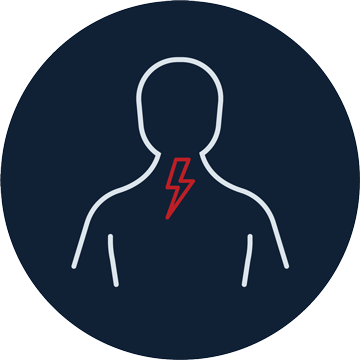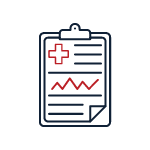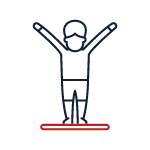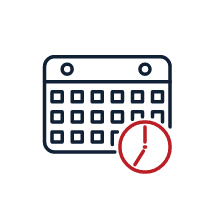
Find the best neck pain treatment near Bellfield at Northern Spinal

Regardless of age or gender, 80 per cent of the population will suffer from neck pain & injury at some time in their life. Neck sprains and strains, such as whiplash are common. Sprains and strains are similar but different soft tissue disorders.
As one of Melbourne’s leading injury clinics in the northern suburbs and city; we provide care to all local Bellfield residents and surrounding communities.
We aim treat your neck injury or pain as effectively and efficiently as possible, being conveniently located in the Melbourne CBD and Reservoir. Our team of allied health professionals including Osteopaths, Chiropractors, Physiotherapists & Podiatrists offer professional care to address the source of your problem and pain.
Before our practitioners can determine the appropriate treatment for your specific neck injury and it’s treatment, they will thoroughly assess you with standard medical, Orthopedic and special Osteopathic tests. Using skilled evaluation, diagnosis and a wide range of hands-on techniques, our team can identify important types of neck injury symptoms in your body and determine personalised treatment plans to fix them.

Neck Pain & Injury Types:
- Sprain: An injury to a ligament caused by overuse or trauma.
- Strain: An injury to a tendon or muscle caused by overuse or trauma.
Whiplash is a common type of sprain often referred to a hyperextension and hyperflexion injury. Muscle pain that develops from cradling the phone between the ear and shoulder is an example of a strain. Both sprains and strains can cause severe pain and sometimes are temporarily disabling.
Neck Pain Symptoms:
Typical symptoms include:
- Varying degrees of pain; mild to intense
- Sharp, dull, throbbing, and/or burning pain
- Stiffness, difficulty moving the neck or upper body
- Swelling
Causes of Neck Pain
By far the most common cause of neck pain relates to the effects of poor posture. In order to understand the impact of poor posture, we must first consider why spinal alignment within the neck is so important.
Your head weighs about 5 kgs and in normal alignment it is balanced on top of your seven neck bones (vertebrae). Your muscles work to maintain this position and easily withstand short periods of variation. Problems arise when we assume awkward positions for prolonged periods.
The fine balance is disturbed and the nerves, muscles, joints, ligaments and discs of your neck become strained and irritated. In fact, the tension in your neck and shoulder muscles doubles for every 2-3 centimetre’s that your head is forward!
Over time, the neck strain and pressure accumulates to a point where it becomes painful and even the smallest changes in posture cause significant effects. Coupled with the stresses and demands of modern life, it is no surprise why neck pain is so common.
Other common causes of neck pain include whiplash, arthritis and sporting injuries.
Diagnosing Neck Pain
Our comprehensive diagnostic process includes:
- Medical history. Your practitioner talks to you about your symptoms, their severity, and what treatments you have already tried.
- Physical examination. You are carefully examined for movement limitations, balance problems, and pain. During the exam, the doctor evaluates loss of extremity reflexes, muscle weakness, loss of sensation, or other signs of a neurological problem.
- Diagnostic tests. Generally, we start with plain x-rays. If necessary, CT scans and MRIs are performed to obtain more detail about your spinal sprain or strain (i.e. rule out vertebral fracture).
Non-Surgical Treatments for Neck Pain
Many different nonsurgical neck injury treatment & options help relieve neck sprain or strain symptoms. These include:
- Medications, such as an anti-inflammatory to reduce swelling and pain, muscle relaxants to calm spasm, and occasionally, narcotic painkillers to alleviate acute pain.
- Cold/heat therapy, especially during the first 24-48 hours of pain onset.
- Soft cervical collar or brace*
- Osteopathy which may include gentle massage, stretching, therapeutic exercise, or traction to decrease pain and increase function.
- Dry Needling
*A cervical collar is a short-term treatment to help support tender and painful neck tissues while they heal. A collar can reduce neck and upper back pain by relieving muscle spasm and cervical fatigue.
In conjunction with these treatments, our team will educate you about healthy posture and proper body mechanics.
Conclusion
Symptoms of a cervical sprain or strain may be similar to other spinal disorders. If pain or symptoms persist or worsen, call our office for an appointment. Our medical staff will provide you with excellent information to help you recover and stay healthy.





